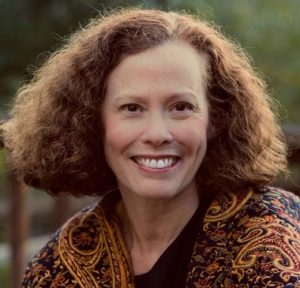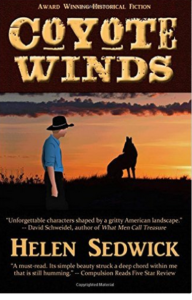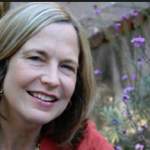 Guest Blogger, attorney Helen Sedwick, writes:
Guest Blogger, attorney Helen Sedwick, writes:
Memoirists are the bravest of writers.
In exploring the journeys of their lives, they delve into the private (and imperfect) lives of others. Can a memoirist write about surviving abuse without getting sued by her abuser? Can a soldier write about war crimes without risking a court-martial?
Yes, but a cool head is key.
Considering the thousands of memoirs published each year, there are relatively few lawsuits. Claims are difficult and expensive to prove. Most targets don’t want to call attention to a matter best forgotten.
However, it’s important for memoir writers to be aware of the legal risks. You can’t avoid risk 100% of the time, but you can learn to take the ones that are important to your narrative arc and minimize those that are not.
What is Safe Territory?
You may write about a person in a positive or neutral light. For instance, you don’t need permission to thank someone by name in your acknowledgments or to mention non-controversial information, such as the name of your fifth-grade teacher.
You may use historical names to establish context. If you are writing a memoir about the summer of 1969, you may mention Neil Armstrong and the moon landing and talk about your crush on Cat Stevens or Grace Slick.
You may speak ill of the dead. Claims of defamation and privacy die with a person.
When to Start Worrying?
When you are publishing information about identifiable, living people and that information could be seriously embarrassing, damaging to their reputation, or subject them to public hatred and score, then you need to consider the risks of defamation and invasion of privacy. I am not talking about portraying your mother-in-law as bossy; I am talking about portraying your mother-in-law as a drug dealer.
Here’s a quick summary of United States law. (The laws of other countries are more favorable to the targets.)
Defamation
To prove defamation, whether libel for written statements or slander for spoken ones, a plaintiff (target) must prove all of the following:
False Statement of Fact:
If a statement is true, then it is not defamatory no matter how offensive or embarrassing (although privacy issues must be considered, as I discuss below). Opinions are protected because they are not “facts.” If you post a restaurant review stating a meal was so bad you gagged, that is an opinion. But one restaurant critic was sued for saying a stringy steak tasted like horsemeat. The plaintiff claimed the reference to horsemeat was a statement of fact and not a colorfully stated opinion. Satire is not defamatory if the absurdity is so clear that a reasonable person would not think the statement is true.
Of an Identifiable, Living Person, Group, or Company:
A defamatory statement must contain sufficient information to lead a reasonable person (other than the target) to identify the target. Typically, the target must be a living person, but organizations have sued for defamation. Oprah Winfrey was sued by a group of Texas ranchers after saying she had sworn off hamburgers because of mad cow disease. (Oprah won the case.)
That is Published:
One person (other than the target) must read or hear the statement.
Causes reputational harm:
The statement must be more than offensive, insulting, or inflammatory. It must “tend to bring the subject into public hatred, ridicule, contempt, or negatively affect its business or occupation.” Statements involving crimes, loathsome diseases, professional incompetence, corruption, impotence, or promiscuity are automatically considered harmful.
Made With Actual Malice or Negligence:
If the target is a public figure, then the target must prove the statement was made with actual knowledge that it was false or with a reckless disregard for the truth. If the target is against a private individual, courts generally require some carelessness or fault by the writer.
Invasion of Privacy Claims
Even if you publish the truth, you may still be sued for unauthorized disclosure of private facts if you disclose private information that is embarrassing or unpleasant about an identifiable, living person and is offensive to ordinary sensibilities and not of overriding public interest.
Private Information:
The target must have a reasonable expectation of privacy. Any conduct in public is not protected, particularly today when everyone carries cameras in their pockets. Conversely, there may be issues your family doesn’t talk about, such as your uncle’s drinking problem, that are not private if your uncle has been convicted in public court of DUIs.
That is Offensive:
The disclosure must be more than embarrassing; it must be so offensive that it harms a person’s personal and professional reputation. Typically, these cases involve incest, rape, abuse, or a serious disease or impairment. Sex videos have triggered a number of suits.
And Not of Public Interest:
Even if the information is highly offensive, courts often decide there is no legal liability if the information is of public interest. Public interest does not mean high-brow or intellectual. Gossip, smut, and just about anything about celebrities is of public interest. Frequently, courts find stories of abuse and incest to be of public interest if they are disclosed by the victims. Judges and juries are not sympathetic when the perpetrator makes a privacy claim.
And Unauthorized.
You can avoid these issues by getting permission from people appearing in your memoir. An email will do. But avoid giving someone the right to approve your manuscript. It’s your story. If your sister remembers the past differently, she should write her own memoir.
Other Privacy Limitations
Ask yourself whether you are subject to other limitations.
- Does your profession impose a duty of privacy? As an attorney, I cannot use confidential information about a client even if I mask the identity. Same for therapists, doctors, medical care givers, accountants, and other professionals.
- Are you are a trustee/guardian for a third party or a minor? Then you have a duty not to cause harm to that person by disclosing private information.
- Would your memoir disclose trade secrets or classified information?
- Have you signed a confidentiality agreement? If you were a party to a dispute settled out of court (including a divorce settlement), your settlement agreement probably contains nondisclosure and non-disparagement clauses.
If any of these apply to you, consult with an attorney about your options.
How to Reduce Your Risks
- Memories are subjective and evolve over time. Verify your memory with research and interviews. Retain records to support your statements.
- Don’t say someone is criminal, sexually deviant, diseased, or professionally incompetent or use labels such as crook, pervert, or corrupt. Instead, stick to verifiable facts and your personal, emotional responses. Show, don’t tell. Let your readers come to their own conclusions.
- Ask yourself how important the information is to your narrative arc. Judges and juries can be moralistic and will punish someone who discloses private information gratuitously or maliciously.
- Rely on publicly-disclosed information, such as court documents and news reports wherever possible.
- Consider changing names, physical characteristics, and settings so targets are not identifiable to the average reader. Using a pen name will also help.
- Wait until your targets have passed away. (Okay, most of us don’t want to wait.)
- Add disclaimers. I give some samples in Book Disclaimers Don’t Have to be Boring.
- Get written consents and releases.
- If accused of a defamatory statement, consider publishing a retraction.
- Engage an attorney to review your manuscript.
- Always reach for the truth when writing—it’s the best defense.
And most importantly, keep a check on your motives. Publishing a memoir is not a chance to get even with somebody by skewering them like a voodoo doll. A memoir is about you, the writer. It’s an opportunity to explore your heart, your character, and your truth.
To learn more about minimizing the legal risks of memoir writing, download my presentation at Fall 2016 Telesummit: The Heart and Soul of Memoir Audio Downloads.
Helen Sedwick is an author and California attorney with thirty years of experience representing businesses and entrepreneurs. Publisher’s Weekly lists her Self-Publisher’s Legal Handbook as one of the top five resource books for independent authors.
Helen’s blog coaches writers on everything from saving on taxes to avoiding scams.
Disclaimer: Helen Sedwick is an attorney licensed to practice in California only. This information is general in nature and should not be used as a substitute for the advice of an attorney authorized to practice in your jurisdiction.
 Many of us have vignettes, little stories of things that happened, that we could write about: Events or situations that enlightened, inspired, or changed us. All are memorable and could be written. But why? Why should you write these stories?
Many of us have vignettes, little stories of things that happened, that we could write about: Events or situations that enlightened, inspired, or changed us. All are memorable and could be written. But why? Why should you write these stories?


